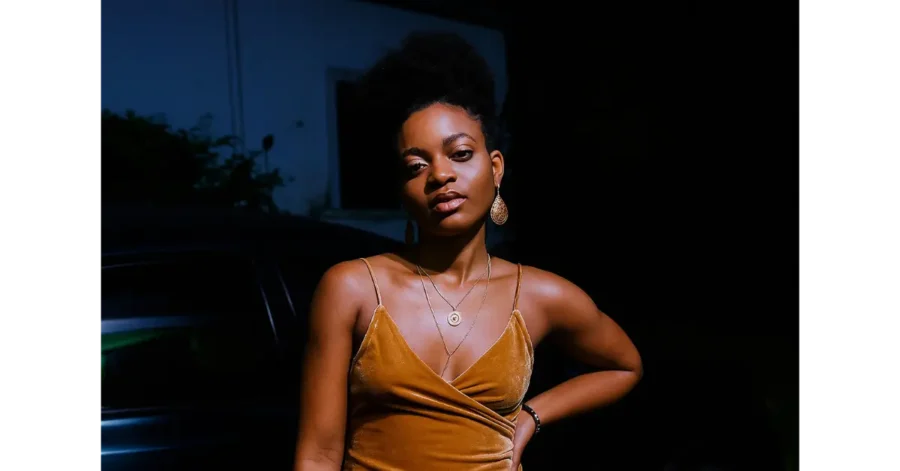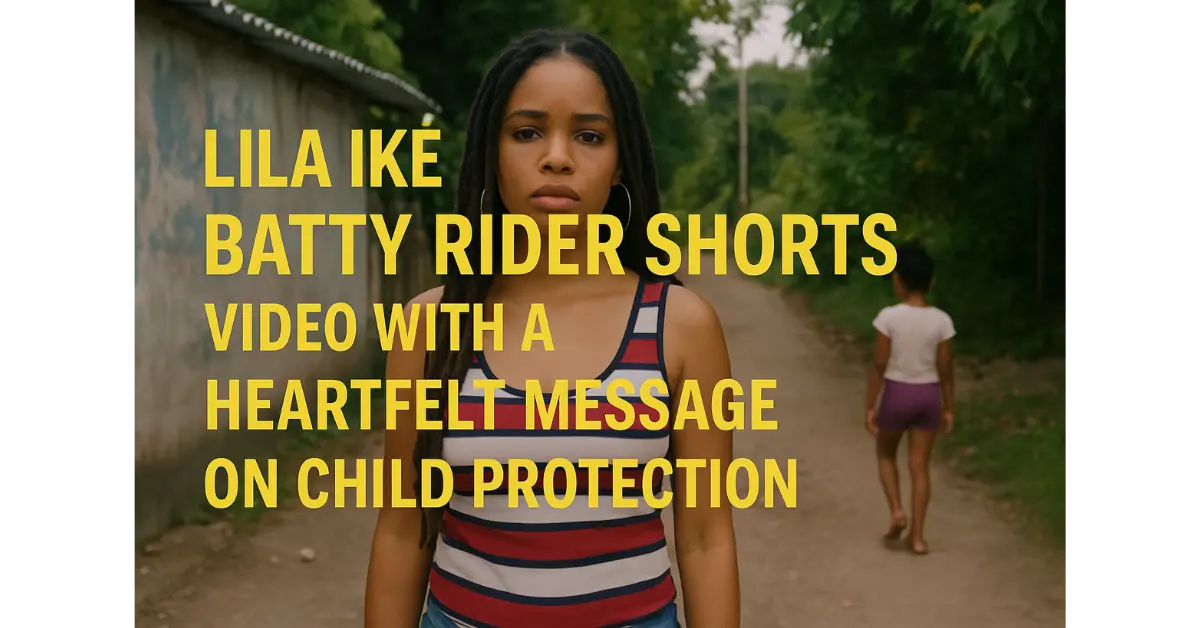
Lila Iké Drops ‘Batty Rider Shorts’ Video with a Heartfelt Message on Child Protection
If you know anything about Jamaica’s new wave of artists, you’ll recognize Lila Iké as a voice that consistently balances edge with empathy, style with substance. Her latest release—the provocative yet poignant ‘Batty Rider Shorts’ music video—reminds us why she’s quickly becoming a leader among female reggae artists not just in Jamaica, but globally. More than just a catchy tune, this new track doubles as a pointed message: the urgency of safeguarding our children and rethinking the narratives we consume and create.
Let’s dive into how this song and video are stirring up conversation from Kingston to London, and why Lila Iké Batty Rider Shorts is destined to be one of the most discussed releases in Jamaican music in 2025.
The Story Behind ‘Batty Rider Shorts’: More Than Meets the Eye
On first listen, “Batty Rider Shorts” might sound like an irresistible dancehall-laced reggae anthem, but there’s a layered story hiding beneath the glossy visuals and infectious rhythms. The phrase “batty rider shorts” is deeply embedded in Jamaican culture, commonly referring to the daring micro shorts popular in dancehall circles. For years, these shorts have been linked with fashion, personal expression, and sometimes controversy—often drawing criticism for allegedly objectifying women and girls.

Lila Iké’s new video 2025 flips the script. Rather than condemning or glamorizing, she uses the symbol of the “batty rider shorts” to open up a conversation about child protection, sexualization, and agency. The song is as much a reminder as it is a warning: innocence is precious, and the responsibility to protect it lies with all of us.
Why Lila Iké? The Heartbeat of Conscious Reggae 2025
Reggae artist Lila Iké has always gravitated toward messages with weight. Her rise through the reggae scene has been marked by a willingness to tackle social themes—mental health, love, heartbreak, and now, childhood innocence. In a genre sometimes accused of shying away from issues facing women and children, her forthrightness is both refreshing and necessary.
Her delivery is rooted in the tradition of conscious reggae 2025, but she spices it up with elements spanning soul, dancehall, and even a sprinkle of afrobeat. This blend has put her at the forefront of Jamaican music in 2025, bridging both mainstream crowds and more critical audiences seeking meaning in melody.
Dissecting the Batty Rider Shorts Music Video
The Batty Rider Shorts music video is an arresting visual journey through Kingston’s backstreets. But it’s more than an aesthetic choice—it’s deliberate social commentary. The video oscillates between images of young girls joyfully skipping through their neighborhoods, women of all ages expressing themselves through dance, and more sobering moments highlighting the risks of unchecked attention and exploitation.
Key Scenes and Symbolism
- Juxtaposition of Youth and Experience: At the center is a young protagonist whose sense of play contrasts with the adult gaze, challenging viewers to confront their own perceptions.
- Empowerment vs. Vulnerability: While celebrating the beauty of self-expression, Iké never lets us forget the line between agency and unwanted exposure.
- Interwoven Quotes and Messages: Powerful phrases about child protection flash on screen, grounding the song’s message.
A Heartfelt Message on Child Protection
It’s the social underpinning that makes “Batty Rider Shorts” more than just music. Lila Iké child protection song isn’t afraid to question parents, community leaders, and the audience itself:
- Are we complicit in creating environments where young people are objectified or left unprotected?
- How do media, music, and fashion trends affect children’s sense of safety and self-worth?
- What role does the wider community play in protecting innocence and guiding youth through a complex world?
Her lyrics don’t point fingers; instead, they highlight shared responsibility—and her video lends faces and stories to these important questions.
The Soundtrack to Dialogue: Black British Voices & Diaspora Resonance
Perhaps one of the most intriguing aspects of Lila Iké Batty Rider Shorts is how quickly it resonated with diasporic communities, particularly among Black British Voices. In cities like London, Birmingham, and Manchester—where Jamaican culture pulses just beneath the surface—the song has sparked urgent conversations among parents, teachers, and cultural commentators about the blurred lines between empowerment and exploitation in popular culture.
Real-World Relevance
- Youth Advocacy Workshops: Already, advocacy groups in both Jamaica and the UK are using the song as an entry point for workshops on safe spaces for children and teens.
- Panel Discussions: Caribbean diaspora media are hosting panels on dress codes in schools, adultification of Black girls, and community approaches to safeguarding.
These ripple effects illustrate how a reggae single can become a catalyst for constructive dialogue across continents.
Two Natural Perspectives: Fashion, Culture & Responsibility
Every big song sparks debate, and Lila Iké new video 2025 is no exception. Two main perspectives have emerged:
1. Fashion as Freedom
Some argue that self-expression—including the right to wear “batty rider shorts”—is a key part of cultural and personal identity. For many, especially young women, rejecting strict dress codes is symbolic of autonomy and confidence. They question whether policing clothing choices solves deeper societal issues.
2. Protecting Childhood
Others emphasize the need for clear community boundaries, citing the very real dangers of early sexualization and exploitation. For this group, the song’s message is a wake-up call—fashion choices aside, the societal gaze and parenting approach must change to ensure kids are protected from harm and inappropriate expectations.
Both views hold merit, and the beauty of Iké’s commentary is that it leaves room for nuance.
The Changing Face of Female Reggae Artists
Female reggae artists like Lila Iké continue to lead vital conversations in ways that challenge the status quo. In a male-dominated industry, her willingness to address child protection, self-worth, and community responsibility is not just brave but essential.
Alongside peers such as Koffee, Sevana, and Naomi Cowan, Iké’s voice is reframing what reggae can be—rich, radical, and ready to tackle twenty-first-century issues.
Spotting the Impact: Conscious Reggae 2025 in Action
What sets conscious reggae 2025 apart is its willingness to engage tough topics without losing musicality. “Batty Rider Shorts” is perfect proof:
- It gets played at parties, in classrooms, and at panel discussions.
- The hook catches listeners, while the verses prompt genuine reflection.
- It invites collaboration between artists, activists, and everyday fans who want music to do more than entertain.
Practical Insights: How to Use the Song for Change
Want to make the most of “Batty Rider Shorts” and its message?
- Start Conversations: Use the song as a prompt for dialogue at home, in schools, and in community groups.
- Organize Listening Sessions: Bring together different age groups to discuss themes of empowerment, safety, and respect.
- Amplify on Social Media: Share reactions, personal stories, and resources using hashtags tied to child protection and conscious reggae.
Conclusion: Lila Iké’s Cultural Call to Action
“Batty Rider Shorts” is more than another entry in the 2025 reggae catalog; it’s a bold reminder of the power music has to challenge norms, protect the vulnerable, and ignite necessary conversations. Jamaican singer Lila Iké has once again shown why she stands at the center of meaningful artistry in Jamaican music in 2025, using her platform to speak truth and inspire action.
As fans stream the song and dissect the video, the hope is simple yet profound: that we listen, reflect, and do our part to ensure every child can dance, play, and grow up with their innocence and dignity intact.
Whether you’re a long-time reggae enthusiast or a newcomer drawn in by the buzz, Lila Iké’s message is clear—music can be both a celebration and a call to do better.

